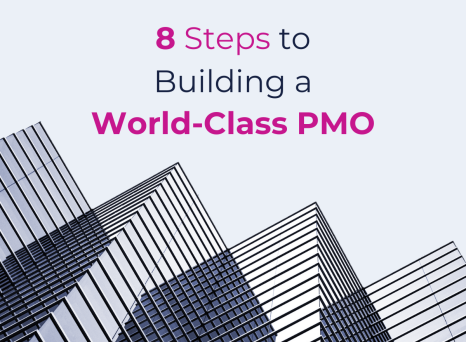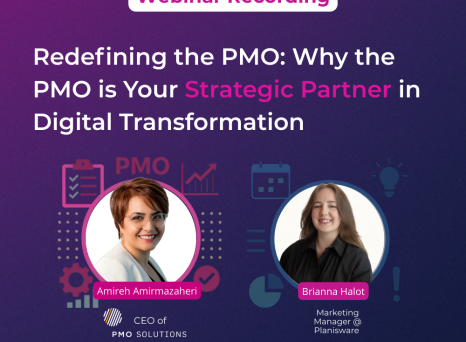If there was an ideal combination of events that would foster the development of PMO and Project Management consulting business, the current economic environment might be it. A lot of organizations are in the middle of pivoting their business and undergoing deep metamorphoses in a new global economy still reeling from a huge disruptive event. To successfully complete this transformation, they need change leaders (and change makers) who can deliver on those changes.
At the same time, a lot of people (especially experienced people) are leaving these same organizations, which means that companies need seasoned people they can pluck off the streets to put to work without having to train extensively beforehand. So, now is the perfect time to build your consulting business and be that person that they are going to call on.
A lot of talk surrounding consulting businesses mentions how easy building a consulting business can be. But there is little discussion about what the pitfalls can be in the real world, either because new (and seasoned!) consultants don't know where to start, or because they are given bad advice.
At Planisware, we like to uncover those important topics that few people talk about, which is why we were delighted to sponsor a recent episode of the PMO Strategies podcast , where Candice Benson and Laura Barnard discuss that very point (among other very important points for Project Management and PMO consultants).
Mistake #1: Trying to start your business from scratch
Like many PMO and project management consultants, you might be starting your consulting adventure after a decade or more of experience working for companies as an employee. And like many before you, you might think that you don't know anyone. That you can't use your past contacts because they are contacts from your previous jobs. Or because they are not going to be interested in the new work you're doing because you're switching industries, or you're offering completely different services from the work you used to do before.
That fear is often borne from the misconception that because you are brand new in your business, you are de facto brand new in your skillsets and your connections. But that fear is in your own head.
There is no reason for you to start from scratch. So, reach out to past colleagues and anyone you've been working with in the past. Let them know “Hey! I'm starting my own business. I'm really excited about it. Here are the services we're going to be offering in the PM/change/PMO space. If you have any projects that are popping up, or if X, Y, Z is happening in your organization, I'm the perfect person to reach out to.”
Mistake #2: Ignoring opportunities in your backyard
In the rush to find brand new projects for your PMO or PM consulting business, you might be overlooking one of the most fertile sources of new business: your own backyard.
Most of us live in some location where a particular industry is strongly established, or where there is a larger than average number of organizations that are doing a similar or closely related types of work. In New York, that would be financial services. In Boston, Higher education. In smaller cities, there is probably a particular industry that is thriving that you could reach out to first.
This is important because it's easier to connect and develop long-lasting relationships with companies that are geographically close to you, than to spend your time flying across the country in search for new opportunities (not to mention way cheaper and less time-consuming…).
Mistake #3: Hiding behind your laptop instead of reaching out in person
Truth is, most of us are more comfortable sitting behind our computer rather than interacting in person with real people. It's much easier to rely on social media, write blog posts than to initiate direct contact with the prospects that we are trying to get business from.
If there was one mistake that PMO and PM consultants should focus on, this is probably it: making sure you are putting yourself in situations where you can have conversations with those companies that are going to buy from you.
Instead of focusing on whether your logo is 100% completed, or if your website does in fact explain every.single.thing.you.do in detail, you need to be out there, making that phone call, reaching out to people in-the-flesh. If there is an in-person event around where you live, go there, meet people, speak to them. That's how you're actually going to find out if what you are saying is the right solution for that ideal customer that you are trying to serve.
Project Management and the PMO is all about relationships. It's about facilitating those right conversations with the right people, getting that alignment, bringing people through the process. So, it should be something we're naturally good at. And at the same time, it's something we think falls lower on the list than getting the website right and all those other marketing things. But there's a place and time for all that. Relationships are everything.
Mistake #4: Trying to be everything to everybody
As consultants, we have a tendency to want to do everything for everyone. We feel that we can solve everyone's problems. And if we could just create a bit more capacity, we could serve every client in every industry. We could do everything.
And here lies another key mistake that PM and PMO consultants make: they do not get clear on why they are doing what they are doing, how they do what they do, and who they do it for. If you're talking to everybody, you're talking to nobody. And if you're for everybody, you're for nobody.
To run a successful consulting business, you need to get crystal clear and specific about what you do, and do not try to do everything for everyone. You cannot be all at once a PMO, change management, project management consulting company that offers training, consulting, on-site project management services to the pharmaceutical, automotive, CPG and aerospace and defense industry.
Start with one thing, and do that well. Serve a specific client type, or a specific industry, and get good at that. Then grow from there. Prospective customers need to hear that you solve their type of problem. Generic project management consultants are a dime a dozen. But specialists in their kind of problem, that genuinely understand the context and the challenges: that's worth a lot.
Mistake #5: Going in thinking you've already got the solution
Not every framework, tool or methodology works for every organization. But to know if one particular approach is going to be a good fit, you first need to speak with the organization. Only then will you be able to come up with the right solution. Going into a project thinking that you know the solution before actually talking to your client's stakeholders is a sure way to fail, if not on this project, then on the next one or the one after that.
Speaking with the organization also requires actively listening to them , learning to speak their language, and respond in a way that is appropriate to the stakeholder you are talking to . These are essential skills. When speaking to executives for example, going into the details of what you're going to do will most often be counterproductive: they don't need to know how the sausage is made, they need to know about the outcomes you are going to help them achieve, and the impact this will have on the organization.
Want to learn more about making your PM / PMO consulting business a success? Listen to the podcast episode for more awesome insights.
If you enjoyed this article, then we can't encourage you enough to go and listen to the full podcast episode . In it, you will learn about the key tools and processes that can help you build your business, and the simple habits you need to start building today to make sure the right projects come your way.


